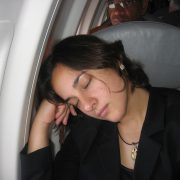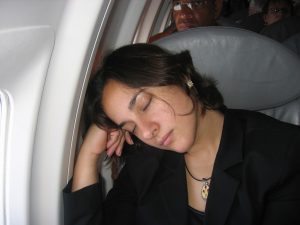Getting the Best from Travel
Getting the Best from Travel: How the World Sleeps
Traveling may be rewarding, but it comes at a cost. Aside from the money you need to spend, you also incur sleep debt while on the road. In fact, Smarter Travel revealed that taking long-haul flights can make you lose several hours worth of sleep due to jet lag.
This is not even counting the sleep debt you incur when you reach your destination. Aside from the hours that you will spend out and about exploring your surroundings, crossing time zones can also take a toll on your body. WebMD estimates that one day is needed per time zone you cross in order for you to adjust to the new schedule. This means the hours of sleep you can potentially lose will pile up with each passing day, and therefore your body may not be able to adjust fully before you head back home. Upon arrival, your system will once again need to recover from the change in time zones (deep breath).
Unfortunately, not getting enough rest during your holiday can take a toll on your body and your mind, making you more lethargic and susceptible to a variety of illnesses. However, the National Sleep Foundation reckons that it is possible to catch up on sleep. It cited a study by Harvard Medical School that proves that there is no way to take back lost sleep no matter how many hours you rest afterwards. Although, what you can do, is to minimize the impact of what The Blonde Abroad describes as the feeling of having your body in one country but your mind in another. In homage to your love of travel, here are some tips from different parts of the world on how to recover from lost sleep.
How the World Sleeps
Leesa reveals that Germans believe that fresh air is the key to restful sleep. In fact, they even leave their blankets hanging outside their homes during the day, believing that the sheets will be able to absorb the rejuvenating powers of the fresh air so they can sleep better at night.
The British supposedly have a habit of sleeping naked. Studies have shown that low temperatures can help people get better sleep. Not wearing clothes means you can stay cooler, which can make it easier for you to nod off more quickly.
Alternatively, you can take notice of the Spanish as they are renowned for their afternoon naps. Time states that this tradition originated from farmers, who spent afternoons resting after busy mornings. Due to the body’s circadian rhythm naturally fluctuating during mid-afternoon, taking a nap then can also help you re-energize.
Of course, a good night’s rest is not the only thing you will need during your holiday. Eating well is equally important. Check out our ‘Five Healthy Travelling Tips’ article to find out how you can maintain healthy eating habits even while on holiday.
Image credit: Flickr





Leave a Reply
Want to join the discussion?Feel free to contribute!